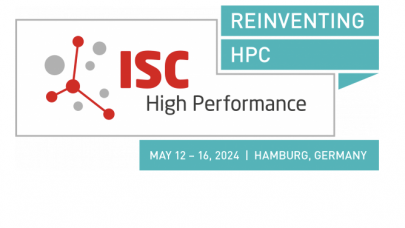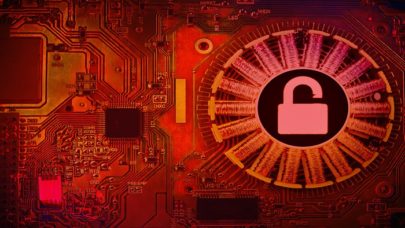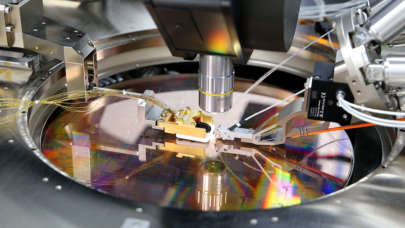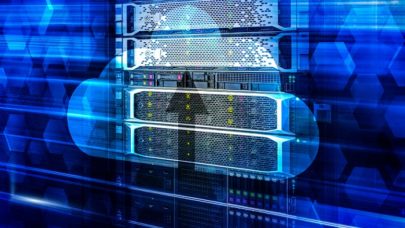Although they’ve been rather quiet compared to their competitors in the general server, GPU and of course, overall HPC market, it might be too early to write off AMD just yet. If we’re to look at their silence as the “calm before the storm” consider it typhoon season, at least according Suresh Gopalakrishnan, corporate vice president and general manager of the AMD server business unit, whom we spoke with this week.
The last time we checked in with AMD, we were told that HPC represented a small share of the overall business focus. At the time, they had a dwindling share of the Top 500 (which hasn’t recovered—AMD claims less than 45 systems across processor generations on the list) and their focus seemed to be targeting anything but high performance computing workloads. But with stiff competition in the mainstream server market from the largely-dominant Intel, the drawn-out death of the PC, and a struggling presence in high-end computing, AMD did the smart thing—they branched out to tackle key segments of the market where they still have a chance. Among those areas is still the ARM server ecosystem—one that they’ll be aggressively attacking with their “Seattle” approach this year. Add to that their APU, which has an HSA shine for developers and a rather powerful GPU to exploit, and they might reclaim their status in an HPC ecosystem that’s moved on with rising shares of discrete GPUs and increasingly, coprocessors like the Xeon Phi.
With all of this in mind, during our chat this week, Gopalakrishnan told us that while their first generation APUs were unquestionably targeting graphics rendering, media and gaming markets, all roads for HPC now lead to “Berlin,” (which we’ll get to in a moment) and a strong ARM presence that’s sparked some surprising interest.
“When we first started talking about [codename Seattle and] ARM, the idea was around hyperscale, storage, cloud and such, but when we went to SC13, we were surprised at the interest from folks we met there who wanted to use ARM in HPC environments,” he revealed. “When we talked to those in Europe, we found that a lot of the research facilities there were also interested in ARM for HPC so a lot of them signed up for our evaluation boards.”
“Seattle” is first to market with a 64-bit ARM-based server SoC from a proven server processor supplier. As he described, “Seattle” is an 8 and then 16-core CPU based on the ARM Cortex-A57 core and is expected to run at or greater than 2 GHz and will offer two to four times the performance of the Opteron X-Series processor with significant improvement in compute-per-watt.” Additionally, Seattle is set to deliver 128GB DRAM support and “extensive offload engines for better power efficiency and reduced CPU loading, server caliber encryption, and compression and legacy networking including integrated 10GbE. It will be the first processor from AMD to integrate AMD’s advanced Freedom Fabric for dense compute systems directly onto the chip.”
He said that this interest at SC and elsewhere made them realize that they have all the components—it’s a matter of wrapping an HPC message around what already exists. “The 1:1 disk to core ratio, 10GbE interconnects, and PCI 3 (for adding Inifiniband, for example) all made it a good fit for HPC.”
The other key to AMD’s HPC future in HPC is found in the x86-based Berlin processors, which are built on the “Steamroller” 28nm architecture, feature an integrated graphics unit that will support HSA, allowing unified GPU/CPU memory access. “Berlin has a lot of graphics compute capabilities coming and it’s just the first in a series of processors that are HAS compliant with associated caching on the GPU side,” said Gopalakrishnan. He notes that initial interest in their APUs is coming from a range of potential areas, including the oil and gas industry (where there’s some stiff competition since many oil and gas shops were early CUDA adopters) as well as for those seeking a platform for Hadoop framework and machine learning or pattern recognition workloads.
While AMD has only released their 2014 roadmap thus far, Gopalakrishnan says that further down the line, they’re planning on rolling out a steady stream of GPU capability increases that follow the same trajectory of their Radeon discrete GPUs. They’re also bolstering efforts on the developer ecosystem around their APU, by bringing new compilers from PGI and others, working to support OpenACC directives, partnering with SUSE for a GCC compiler to provide OpenMP directives and perhaps most important for their broader goals, working with Oracle to bring Java to entire GPU/CPU side.
Although the programmatic ease Gopalakrishnan talked about, enabled by HSA, is attractive, AMD is forever in a slow race with Intel, now especially in the accelerator/co-processor market. When asked about gaining an edge against the Phi, he said the question becomes one of making sure that the right task is being scheduled at the right point—as with Phi and you’re forced to take programming to that level. “Phi addresses one part of the programming ease issue, which is that you don’t need to use CUDA or OpenCL but instead x86 for the parallelization. Even still, you have to worry about separating the tasks, sending things to the right place and passing data back and forth between the two systems. We’re bringing the ability to be able to compile directly from Fortran, C or other high level languages to give OpenACC or OpenMP directives and be able to compile directly on the APU—in this way we’re making sure the scheduling is handled from the tool side and the memory accesses are within the same memory pool so to minimize passing.”
Gopalakrishnan says the same concept applies to how they’re bringing Java into the fold. Almost all HPC apps are in C, Fortran or CUDA in conjunction with one of those. “We’re enabling Java onto the APUs and have been working with Oracle for many years on that. We released our own parallel API, which was the start for developers to use Java and GPU compute.” With the release of Java 9 these APIs will become part of the mesh. “We’re bringing an additional level of programming into this and seeing traction from people saying this opens up apps to more than just the traditional developers for future HPC applications.”
While much of this remains to be seen throughout 2014, it’s safe to say, “welcome back, AMD—the race has been quiet without you”….because the more competitor, the merrier, right?





























































